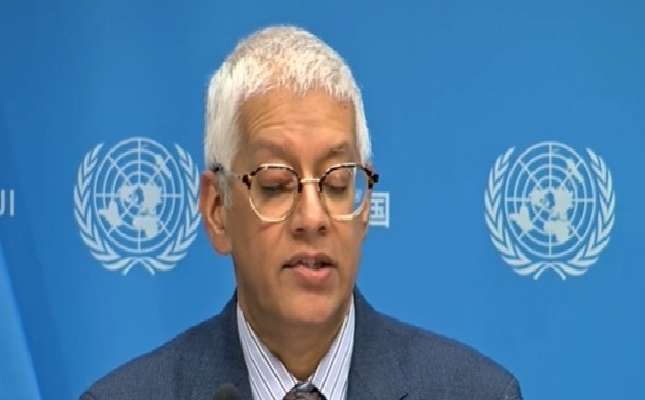Thousands of Palestinians are returning to their homes in the aftermath of a recent ceasefire, only to find widespread devastation and overcrowded UN shelters. The truce has allowed displaced residents to attempt to rebuild their lives, but many are confronted with the grim reality of homes reduced to rubble. With limited options, families are seeking refuge in newly accessible areas, though these sites are already overwhelmed by the influx of people. Farhan Haq, Deputy Spokesperson for the UN Secretary-General, highlighted the growing movement across the Gaza Strip as residents relocate to safer or newly accessible zones. On Sunday alone, nearly 13,800 displacements were recorded towards Gaza City and North Gaza, with an additional 4,100 movements to the east. Humanitarian operations are being rapidly expanded under a 60-day response plan, with aid agencies increasing their presence in newly accessible areas to address soaring needs. Food parcels, containing essentials like rice, lentils, and fortified sunflower oil, are being distributed at over two dozen locations, reaching more than 15,000 households. UN agencies and 21 partner organizations provided nearly 944,000 meals over the weekend through 178 community kitchens, marking a significant increase in food assistance. The World Health Organization (WHO) has also intensified efforts, dispatching critical medical supplies to key health facilities, including treatments for chronic illnesses and essential pain relief medications. Shelter assistance is being scaled up ahead of the winter season, with 300 tents and 14,700 blankets distributed to vulnerable households. However, humanitarian partners warn that far greater volumes of shelter materials are urgently needed, requiring Israeli authorities to grant additional access for aid organizations. Despite the ceasefire, the humanitarian crisis continues to deepen, with aid groups emphasizing that the needs are outpacing available resources.
Thousands of Palestinians return to devastated homes as UN warns of overcrowded shelters and growing humanitarian needs
